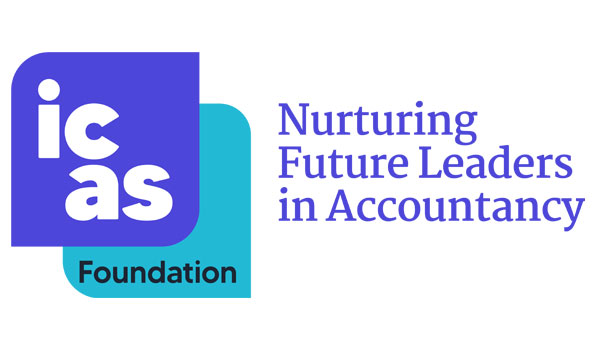Lancaster University Investment and Finance Society is Lancaster University's dedicated investment society, bringing together consulting, accounting, business, and investing into one community. The society’s mission is to increase members’ financial knowledge and awareness of career opportunities within the sector while fostering professional connections. Their events include the Lancaster Forum, which offers members unique opportunities to network with industry professionals from leading firms such as Jefferies, Deutsche Bank, Bank of America, Barings, EY Parthenon, and more.
We welcome applications from the United States of America
We've put together information and resources to guide your application journey as a student from the United States of America.
Overview
Top reasons to study with us
-
4
4th for graduate prospects: Accounting & Finance
The Guardian University Guide (2025)
-
7
7th for Accounting and Finance
The Guardian University Guide (2025)
-
QS 5 Star rating for Accounting and Finance
Introduction
BSc (Hons) Finance (Industry) prepares you for a successful career in highly sought-after and well-compensated jobs at top employers in investment and finance. Potential careers include Investment Banker, Financial Analyst, Trader, Financial and Asset Manager, Risk Manager, and Actuary. The course offers a perfect balance of academic theory informed by cutting-edge research and valuable practical experience.
You will gain a strong understanding of finance while also improving your communication, teamwork, data analysis, programming, use of AI, and leadership skills.
There are opportunities to study abroad, complete an internship, and take the Chartered Financial Analyst (CFA) level 1 examination as part of the course. This degree also prepares you to pursue a specialised MSc at leading UK and international universities.
Why Lancaster?
This degree is flexible, career-focused, and professionally designed to prepare you for highly remunerated jobs at leading employers in investment and finance. You will benefit from our strong connections with top firms in the financial sector. Our specialist Accounting and Finance career coaching team provide support with landing internships and placements in the financial industry.
Students graduate from this course as independent thinkers and skilled communicators. They have strong analytical and quantitative skills and are valued for their expertise in financial modelling and investment decision-making capabilities. Our graduates go on to achieve professional roles, including:
- Investment Banker
- Financial Analyst
- Trader
- Financial and Asset Manager
- Risk Manager
- Actuary
You will explore a wide range of topics essential for finance-oriented careers. You will cover traditional finance building blocks such as financial markets, corporate finance, investment, and asset pricing. We will also address highly topical subjects such as financial technology (FinTech), blockchain and cryptocurrency, applications of AI and machine learning, big data in finance, climate finance, and Environmental, Social, and Governance (ESG) issues.
The course also covers key data analysis skills, including programming in Python and R - two modern programming languages that are key requirements in the area. You will learn financial modelling and risk management, along with how to use data platforms such as Bloomberg effectively. Important practical skills include critical thinking, effective communication and teamwork, problem-solving, project management, strategic planning, and leadership. This will help you work confidently and become a future leader in the challenging, fast-changing, but exciting financial world.
As part of the course, there are opportunities to carry out internships and placements at top firms in the financial industry or complete a period of study abroad at one of our international partner universities, subject to availability. You may also opt to take the CFA level 1 examination.
Throughout your studies, you will be taught by world-leading academics who work on major interdisciplinary research projects. These include investigating how to apply AI to banking, studying the art, precision and effectiveness of factor investing and hedge fund strategies, and developing state-of-the-art methodologies for risk and volatility modelling and real-time detection of extreme market movements such as flash crashes.
We leverage our strong connections with the financial industry through our in-house Industry Engagement and Knowledge Transfer Series (IEKTS). This includes regular talks and events featuring guest speakers from leading global financial institutions, top asset management companies, financial regulators, and economists from around the world. These sessions offer unique opportunities to gain insights from both top academics and industry practitioners.
Careers
As a BSc Finance (Industry) graduate, you will leave Lancaster with deep knowledge of financial markets, trading strategies, risk management and topical subjects such as AI, machine learning, FinTech, blockchain and cryptocurrency. You will also have developed strong quantitative, teamwork and communication skills. Past students have secured roles in industries such as:
- Investment banking
- Asset management
- Trading
- Data analysis
- Financial consultancy
- Risk management
- Quantitative research
- Corporate finance and governance
- Sustainable finance and ESG
Previous students have gone on to work at organisations including:
- Bloomberg
- UBS
- Deloitte
- Deutsche Bank
- EY
- Goldman Sachs
- HSBC
- Hang Seng Bank
Many of our graduates are also inspired to continue their academic studies and embark on postgraduate education, such as pursuing an advanced specialised master’s at Lancaster or other top universities in the UK or overseas.
Our BSc (Hons) Finance (Industry) degree also equips you with highly desirable transferable skills, allowing you to explore careers in the less well-known financial sectors of credit rating agencies, custodian banks, interdealer brokers, wealth management, vendors and insurance, as well as professional jobs in related industries such as accountancy, business and management, both locally and globally.
The Management School has an award-winning careers team that provides dedicated careers and placement services, offering a range of resources for LUMS students. We provide a range of innovative services for Accounting and Finance students, including:
Before you arrive
- Industry-focused careers webinars
- Support in finding first-year Investment Banking and Asset Management Spring Weeks and, subsequently, Financial Services internships, beginning virtually in the four weeks leading up to the start of your course.
During your studies
- Embedded careers education throughout the degree
- Career information, advice, and guidance appointments with specialist careers coaches
- Weekly workshops on key employability skills
- Exposure to international career options and networks
- Connections to strong networks of employers and alumni
- Support in finding and acquiring work experience opportunities, including placements and internships
On graduation
- Access to our LUMS Accounting and Finance Alumni Community
- Continued access to all LUMS Careers services
Our high reputation means we attract a wide range of leading global employers to campus, allowing you to interact with graduate recruiters from day one of your degree.
Lancaster University is dedicated to ensuring you not only gain a highly reputable degree, you also graduate with relevant life and work-based skills. We are unique in that every student is eligible to participate in The Lancaster Award, which allows you to complete key activities such as work experience, employability awareness, career development, campus community and social development. Visit our careers section for more details.
Entry requirements
These are the typical grades that you will need to study this course. You may need to have qualifications in relevant subjects. In some cases we may also ask you to attend an interview or submit a portfolio. You must also meet our English language requirements.
Find more about these qualifications and others not shown here
Qualifications and typical requirements accordion
AAB. This should include Mathematics.
Our typical entry requirement would be 36 Level 3 credits at Distinction plus 9 Level 3 credits at Merit, but you would need evidence that you had the equivalent of A level Mathematics grade B.
We accept the Advanced Skills Baccalaureate Wales in place of one A level, or equivalent qualification, as long as any subject requirements are met.
DDD accepted alongside A level Mathematics grade B
A level at grade B plus BTEC(s) at DD, or A levels at grade AB plus BTEC at D. This should include A level Mathematics grade B.
35 points overall with 16 points from the best 3 HL subjects, including 6 in Mathematics HL (either analysis and approaches or applications and interpretations)
We are happy to admit applicants on the basis of five Highers, but where we require a specific subject at A level, we will typically require an Advanced Higher in that subject. If you do not meet the grade requirement through Highers alone, we will consider a combination of Highers and Advanced Highers in separate subjects. Please contact the Admissions team for more information.
Only accepted alongside A level Mathematics
Contact Admissions
If you are thinking of applying to Lancaster and you would like to ask us a question, please complete our enquiry form and one of our team will get back to you.
International foundation programmes
Delivered in partnership with INTO Lancaster University, our one-year tailored foundation pathways are designed to improve your subject knowledge and English language skills to the level required by a range of Lancaster University degrees. Visit the INTO Lancaster University website for more details and a list of eligible degrees you can progress onto.
Contextual admissions
Contextual admissions could help you gain a place at university if you have faced additional challenges during your education which might have impacted your results. Visit our contextual admissions page to find out about how this works and whether you could be eligible.
Course structure
Enhancing our curriculum
We continually review and enhance our curriculum to ensure we are delivering the best possible learning experience, and to make sure that the subject knowledge and transferable skills you develop will prepare you for your future.
We will publish more detailed information about the structure of this degree course for 2026-entry in June 2025, ahead of our summer undergraduate open days. This will include overviews of the core modules you will take and examples of optional modules which may be available to you.
Fees and funding
We set our fees on an annual basis and the 2026/27 entry fees have not yet been set.
As a guide, our fees in 2025/26 were:
| Home | International |
|---|---|
| £9,535 | £25,450 |
Additional fees and funding information accordion
Additional costs for this course
Following graduation, you may need to pay a subscription to a professional body for some chosen careers.
To take the CFA level 1 examination, you will need to pay a fee to the CFA Institute. The fee is dependent upon the time of year that you enrol. The CFA website provides the current fee levels.
There may be extra costs related to your course for items such as books, stationery, printing, photocopying, binding and general subsistence on trips and visits. Following graduation, you may need to pay a subscription to a professional body for some chosen careers.
Specific additional costs for studying at Lancaster are listed below.
College fees
Lancaster is proud to be one of only a handful of UK universities to have a collegiate system. Every student belongs to a college, and all students pay a small college membership fee which supports the running of college events and activities. Students on some distance-learning courses are not liable to pay a college fee.
For students starting in 2025, the fee is £40 for undergraduates and research students and £15 for students on one-year courses.
Computer equipment and internet access
To support your studies, you will also require access to a computer, along with reliable internet access. You will be able to access a range of software and services from a Windows, Mac, Chromebook or Linux device. For certain degree programmes, you may need a specific device, or we may provide you with a laptop and appropriate software - details of which will be available on relevant programme pages. A dedicated IT support helpdesk is available in the event of any problems.
The University provides limited financial support to assist students who do not have the required IT equipment or broadband support in place.
Study abroad courses
In addition to travel and accommodation costs, while you are studying abroad, you will need to have a passport and, depending on the country, there may be other costs such as travel documents (e.g. VISA or work permit) and any tests and vaccines that are required at the time of travel. Some countries may require proof of funds.
Placement and industry year courses
In addition to possible commuting costs during your placement, you may need to buy clothing that is suitable for your workplace and you may have accommodation costs. Depending on the employer and your job, you may have other costs such as copies of personal documents required by your employer for example.
The fee that you pay will depend on whether you are considered to be a home or international student. Read more about how we assign your fee status.
Home fees are subject to annual review, and may be liable to rise each year in line with UK government policy. International fees (including EU) are reviewed annually and are not fixed for the duration of your studies. Read more about fees in subsequent years.
We will charge tuition fees to Home undergraduate students on full-year study abroad/work placements in line with the maximum amounts permitted by the Department for Education. The current maximum levels are:
- Students studying abroad for a year: 15% of the standard tuition fee
- Students taking a work placement for a year: 20% of the standard tuition fee
International students on full-year study abroad/work placements will be charged the same percentages as the standard International fee.
Please note that the maximum levels chargeable in future years may be subject to changes in Government policy.
Scholarships and bursaries
Details of our scholarships and bursaries for students starting in 2026 are not yet available.
You can use our scholarships for 2025-entry applicants as guidance.
Similar courses
-
Accounting and Finance
- Accounting and Finance BSc Hons : N400
- Accounting and Finance (Industry) BSc Hons : N401
- Accounting and Management BSc Hons : NN24
- Accounting and Management (Industry) BSc Hons : NN25
- Economics and Finance BSc Hons : NL31
- Economics and Finance (Industry) BSc Hons : NL32
- Economics and Finance (Study Abroad) BSc Hons : NL33
- Finance BSc Hons : N300
Important information
The information on this site relates primarily to 2026/2027 entry to the University and every effort has been taken to ensure the information is correct at the time of publication.
The University will use all reasonable effort to deliver the courses as described, but the University reserves the right to make changes to advertised courses. In exceptional circumstances that are beyond the University’s reasonable control (Force Majeure Events), we may need to amend the programmes and provision advertised. In this event, the University will take reasonable steps to minimise the disruption to your studies. If a course is withdrawn or if there are any fundamental changes to your course, we will give you reasonable notice and you will be entitled to request that you are considered for an alternative course or withdraw your application. You are advised to revisit our website for up-to-date course information before you submit your application.
More information on limits to the University’s liability can be found in our legal information.
Our Students’ Charter
We believe in the importance of a strong and productive partnership between our students and staff. In order to ensure your time at Lancaster is a positive experience we have worked with the Students’ Union to articulate this relationship and the standards to which the University and its students aspire. View our Charter and other policies.
Undergraduate open days 2025
Our summer and autumn open days will give you Lancaster University in a day. Visit campus and put yourself in the picture.
Undergraduate Open Days
-
Virtual tour
Take five minutes and let us show you what Lancaster has to offer, from our beautiful green campus to our colleges, teaching and sports facilities.

-
Accommodation guide
Most first-year undergraduate students choose to live on campus, where you’ll find accommodation to suit different preferences and budgets.

-
The city and beyond
Our historic city is student-friendly and home to a diverse and welcoming community. Beyond the city you'll find a stunning coastline and the picturesque Lake District.





.png)








